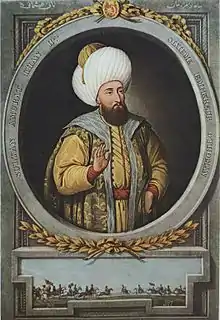| Millennium: | 2nd millennium |
|---|---|
| Centuries: | |
| Decades: | |
| Years: |
| 1451 by topic |
|---|
| Arts and science |
| Leaders |
|
| Birth and death categories |
| Births – Deaths |
| Establishments and disestablishments categories |
| Establishments – Disestablishments |
| Art and literature |
| 1451 in poetry |
| Gregorian calendar | 1451 MCDLI |
| Ab urbe condita | 2204 |
| Armenian calendar | 900 ԹՎ Ջ |
| Assyrian calendar | 6201 |
| Balinese saka calendar | 1372–1373 |
| Bengali calendar | 858 |
| Berber calendar | 2401 |
| English Regnal year | 29 Hen. 6 – 30 Hen. 6 |
| Buddhist calendar | 1995 |
| Burmese calendar | 813 |
| Byzantine calendar | 6959–6960 |
| Chinese calendar | 庚午年 (Metal Horse) 4148 or 3941 — to — 辛未年 (Metal Goat) 4149 or 3942 |
| Coptic calendar | 1167–1168 |
| Discordian calendar | 2617 |
| Ethiopian calendar | 1443–1444 |
| Hebrew calendar | 5211–5212 |
| Hindu calendars | |
| - Vikram Samvat | 1507–1508 |
| - Shaka Samvat | 1372–1373 |
| - Kali Yuga | 4551–4552 |
| Holocene calendar | 11451 |
| Igbo calendar | 451–452 |
| Iranian calendar | 829–830 |
| Islamic calendar | 854–855 |
| Japanese calendar | Hōtoku 3 (宝徳3年) |
| Javanese calendar | 1366–1367 |
| Julian calendar | 1451 MCDLI |
| Korean calendar | 3784 |
| Minguo calendar | 461 before ROC 民前461年 |
| Nanakshahi calendar | −17 |
| Thai solar calendar | 1993–1994 |
| Tibetan calendar | 阳金马年 (male Iron-Horse) 1577 or 1196 or 424 — to — 阴金羊年 (female Iron-Goat) 1578 or 1197 or 425 |
Year 1451 (MCDLI) was a common year starting on Friday (link will display the full calendar) of the Julian calendar.
Events
January–December
- January 7 – Pope Nicholas V issues a Papal Bull[1] to establish The University of Glasgow; classes are initially held in Glasgow Cathedral.
- February 3 – Murad II, Sultan of the Ottoman Empire, dies and is succeeded (on February 18) by his son, Mehmed II.
- February 14 – Louis XI of France marries Charlotte of Savoy.
- April 11 – Celje acquires market town status and town rights, by orders from Count Frederic II of Celje.
- April 19 – In the Delhi Sultanate, the Afghan Lodi Dynasty succeeds the Turkish Sayyid Dynasty.
- June 30 – French troops under Jean de Dunois invade Guyenne, and capture Bordeaux.
- August 20 – The French capture Bayonne, the last English stronghold in Guyenne.
- October – After assassinating Bogdan II of Moldavia, Petru Aron takes up the throne.
- October 28 – Revolt of Ghent: Ghent takes up arms against Philip the Good, Duke of Burgundy.
Date unknown
- The Great Peacemaker along with Jigonhsasee and Hiawatha, found the Haudenosaunee, commonly called the Iroquois Confederacy
Births
- January 14 – Franchinus Gaffurius, Italian composer (d. 1522)
- January 29 – John, Prince of Portugal, Prince of Portugal (d. 1451)
- February 17 – Raffaello Maffei, Italian theologian (d. 1522)
- March 5 – William Herbert, 2nd Earl of Pembroke, English earl (d. 1491)
- March 9 – Amerigo Vespucci, Italian explorer (d. 1512)[2]
- April 22 – Queen Isabella I of Castile, Castillian queen regnant and first queen of a united Spain (by marriage to Ferdinand of Aragon) (d. 1504)[3]
- May 2 – René II, Duke of Lorraine (d. 1508)
- May 17 – Engelbert II of Nassau, Count of Nassau-Vianden and Lord of Breda (1475–1504) (d. 1504)
- June 1 – Giles Daubeney, 1st Baron Daubeney (d. 1508)
- July 10 – James III of Scotland (d. 1488)[4]
- September 5 – Isabel Neville, Duchess of Clarence, elder daughter of Richard Neville (d. 1476)[5]
- November 29 – Elisabeth of Brandenburg, Duchess of Württemberg (d. 1524)
- date unknown
- Christopher Columbus, Italian explorer (d. 1506)[6]
- Ignatius Noah of Lebanon, Syriac Orthodox patriarch of Antioch (d. 1509).[7]
Deaths

Sultan Murad II
- January 7 – Antipope Felix V (b. 1383)
- January 18 – Henry II, Count of Nassau-Siegen, Co-ruler of Nassau-Siegen (1442–1451) (b. 1414)[8]
- February 3 – Murad II, Ottoman Sultan (b. 1404)
- June – ‘Abdullah, Timurid Empire ruler
- July 11 – Barbara of Cilli, Holy Roman Empress, queen consort of Hungary and Bohemia (b. 1392)
- October – Bogdan II of Moldavia, assassinated by Petru Aron
- date unknown
- Stefan Lochner, German painter (b. 1400)
- John Lydgate, English monk and poet (b. 1370)
- al-Mustakfi II, Abbasid Caliph
References
- ↑ "University of Glasgow :: Story :: The Papal Bull".
- ↑ Chase's Editors; Contemporary Books (September 2002). Chase's Calendar of Events 2003. McGraw-Hill. p. 169. ISBN 978-0-07-139098-9.
- ↑ Peggy K. Liss (2004). Isabel the Queen: Life and Times. University of Pennsylvania Press. p. 9. ISBN 978-0-8122-1897-8.
- ↑ "King James III: Biography on Undiscovered Scotland". www.undiscoveredscotland.co.uk. Retrieved January 29, 2021.
- ↑ Amy Licence (April 15, 2013). Anne Neville: Richard III's Tragic Queen. Amberley Publishing Limited. pp. 29–. ISBN 978-1-4456-1177-8.
- ↑ "Christopher Columbus | Biography, Voyages, & Facts". Encyclopedia Britannica. Retrieved January 21, 2021.
- ↑ Barsoum, Aphrem (2003). The Scattered Pearls: A History of Syriac Literature and Sciences. Translated by Matti Moosa (2nd ed.). Gorgias Press. pp. 508–509. Retrieved July 14, 2020.
- ↑ Van den Berg, F.M. (1992). "Een Nassau's graf in Italië". In Van der Klooster, L.J.; Tiethoff-Spliethoff, M.E.; Tamse, C.A. & Elzenga, E. (eds.). Militaire entourage rondom Oranje en andere bijdragen over het Huis van Oranje. Oranje-Nassau Museum Jaarboek 1992 (in Dutch). Zutphen: Walburg Pers. p. 89. ISBN 90-6011-812-X.
This article is issued from Wikipedia. The text is licensed under Creative Commons - Attribution - Sharealike. Additional terms may apply for the media files.
.jpg.webp)